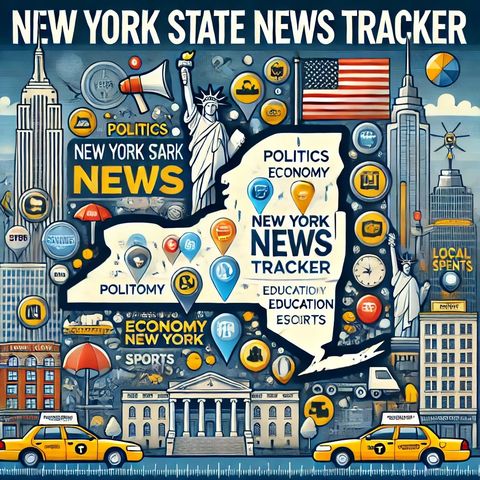New York's Climate Crusade: CLCPA Drives Emission Cuts, Economic Relief, and Infrastructure Transformation

Sign up for free
Listen to this episode and many more. Enjoy the best podcasts on Spreaker!
Download and listen anywhere
Download your favorite episodes and enjoy them, wherever you are! Sign up or log in now to access offline listening.
New York's Climate Crusade: CLCPA Drives Emission Cuts, Economic Relief, and Infrastructure Transformation
This is an automatically generated transcript. Please note that complete accuracy is not guaranteed.
Description
In response to the intensifying challenges posed by global climate change, New York State enacted the Climate Leadership and Community Protection Act (CLCPA) in 2019. This landmark legislation is ambitious...
show moreGovernor Kathy Hochul, demonstrating a commitment to these initiatives, has also been focusing on economic relief and infrastructure support, explicitly highlighted by the state's provision of $2.3 billion in tax relief assistance intended for nearly three million residents. This move aims not only to ease fiscal strains but also to circulate more capital within local economies which can indirectly support further environmental initiatives.
Moreover, infrastructure in New York, particularly public transportation in New York City, significantly influences the state's carbon footprint. The Metropolitan Transportation Authority (MTA) plays a crucial role here. As part of its commitment to sustainability, the MTA has been involved in continuous discussions and updates to its capital plan, aiming to improve the city’s public transit system. Enhancing the efficiency and reach of public transportation is an integral component of reducing overall vehicle emissions, a key target under the CLCPA.
These efforts are increasingly critical as the effects of climate change become more visible and pressing. The CLCPA represents a proactive approach, positioning New York as a leader in climate action. However, its ambitious targets for emission reductions and renewable energy adoption are not without challenges. The act requires a thoughtful balancing of economic, social, and environmental impacts, particularly how these changes affect the state's industries, workforce, and marginalized communities.
Public response to these initiatives tends to vary, with some constituents expressing concerns about potential economic repercussions and the feasibility of the transitions involved. The implementation phases of the CLCPA will need to address these worries through transparent communication and inclusive planning to ensure broad public support and effective action against climate threats. Meanwhile, Governor Hochul's administration must continue to navigate these complex dynamics, ensuring the state meets its ambitious environmental goals while fostering economic stability and equity.
Information
| Author | QP-4 |
| Organization | William Corbin |
| Website | - |
| Tags |
Copyright 2024 - Spreaker Inc. an iHeartMedia Company
